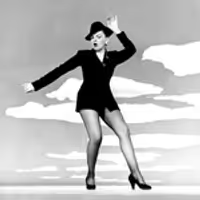The cost of performing on the Tony Awards?
#1The cost of performing on the Tony Awards?
Posted: 6/6/24 at 3:27pm
Ugh, the articles I've found (WSJ and MarketWatch) are behind paywalls. So I came to ask here. I know costs are high to peform on the Tonys, but can someone explain what those costs are? I know that sometimes (not this year) non nominated shows can perform, but are charged to do so - what about the nominated shows....are the costs the same? Obv it costs to get set pieces/costumes moved/recreated, and I think I remember that the cast is paid if they perform.
Any light someone can shed on this will be greatly appreciated. I'm really asking those that know, not looking for speculation (I can do that on my own!)
AEA AGMA SM
Broadway Legend Joined: 8/13/09
#2The cost of performing on the Tony Awards?
Posted: 6/6/24 at 3:53pm
One cost that the general public probably overlooks is the cost of transporting the cast. Other than nominated leads who are expected to be sitting in the house while not performing, the rest of the cast typically gets into costume at the theatre and then gets bussed to the venue. They end up waiting on their bus until it's closer to their time to perform. Then, of course, they are bussed back to the theatre to get out of costume.
BentleyB
Featured Actor Joined: 4/4/17
#3The cost of performing on the Tony Awards?
Posted: 6/6/24 at 3:55pm
I don’t know the costs, but most of the sets for the Tony Awards are projections with a few set pieces recreated. The last time we went to the show in 2019, The only set piece brought on for “The Prom” was a very scaled down version of the bedroom and “Hadestown” had no set pieces, but the lights and a few platforms and to me didn’t resemble or represent the show at all.
#4The cost of performing on the Tony Awards?
Posted: 6/6/24 at 4:01pm
costs include but aren't limited to:
- transportation
- rehearsal costs
- union fees for talent: actors, band, orchestrator/arranger
- overtime for personnel, associates, etc
- costs to duplicate/adapt any costumes or set pieces if needed or create projections based on the set
Similar costs are incurred if a full cast performs on the Today Show or Fallon or American Idol
#5The cost of performing on the Tony Awards?
Posted: 6/6/24 at 4:11pm
Which makes me ask again as I have for so long - why not just film the numbers on stage in their theaters and broadcast that? They did it before and it worked better than most of the Tonys numbers we see. It’s only a downside for the people in the audience there and since the broadcast is trying to sell the shows, why not show the actual product in its original form?
JSquared2
Broadway Legend Joined: 3/23/17
#6The cost of performing on the Tony Awards?
Posted: 6/6/24 at 4:15pm
BentleyB said: "I don’t know the costs, but most of the sets for the Tony Awards are projections with a few set pieces recreated.
That is 100% false. Also, the OP requested actual knowledge -- not conjecture.
#7The cost of performing on the Tony Awards?
Posted: 6/6/24 at 4:27pm
Jordan Catalano said: "Which makes me ask again as I have for so long - why not just film the numbers on stage in their theaters and broadcast that? They did it before and it worked better than most of theTonys numbers we see. It’s only a downside for the people in the audience there and since the broadcast is trying to sell the shows, why not show the actual product in its original form?"
I’m sure it has something to do with the tony awards selling tickets and making money off of the ceremony. If they didn’t have the live performances it wouldn’t really be worth it for major benefactors to spend 1,000 plus dollars for a seat.
#8The cost of performing on the Tony Awards?
Posted: 6/6/24 at 4:31pm
Call_me_jorge said: "Jordan Catalano said: "Which makes me ask again as I have for so long - why not just film the numbers on stage in their theaters and broadcast that? They did it before and it worked better than most of theTonys numbers we see. It’s only a downside for the people in the audience there and since the broadcast is trying to sell the shows, why not show the actual product in its original form?"
I’m sure it has something to do with the tony awards selling tickets and making money off of the ceremony. If they didn’t have the live performances it wouldn’t really be worth it for major benefactors to spend 1,000 plus dollars for a seat."
Nothing to do with that. Those "benefactors" (co-producers) buy tickets to attend the Tonys because they are nominees, and if they win they want to celebrate with their fellow co-producers. (Though not so much this year.) If they attend but aren't nominated, they want to "see and be seen" or schmooze or otherwise feel like they're part of the community.
BentleyB
Featured Actor Joined: 4/4/17
#9The cost of performing on the Tony Awards?
Posted: 6/6/24 at 4:53pm
JSquared2 said: "BentleyB said: "I don’t know the costs, but most of the sets for the Tony Awards are projections with a few set pieces recreated.
That is 100% false. Also, the OP requested actual knowledge -- not conjecture."
Ummm..sorry, but it is not false. Look at the taped version of “Hadestown” performed at the Tony’s. Projections in the back and some platforms the musicians sat on. Also look at the “The Prom”. Sitting in the audience, I will tell you they were projections. Why do people even bother saying anything here? I’m out.
#10The cost of performing on the Tony Awards?
Posted: 6/6/24 at 6:28pm
I have no knowledge, but the theory about the combo of projections and smaller movable set pieces seems pretty legit. Watching the show in huge HD each year makes the projections pretty obvious, especially in closeups. (the one that comes to mind is the Waitress performance with projections or LCD-display versions of the show's sets) I don't mind it at all when they're well done... can capture the look of the show without as much expense or set logistics.
Jakeevan942
Leading Actor Joined: 6/18/08
#11The cost of performing on the Tony Awards?
Posted: 6/6/24 at 6:59pm
A lot of the economics of this lay behind NDAs, but take a minute to slow-motion the credits at the end of the show on the 16th, and you'll probably see something to the tune of "Promotional Consideration or Financial Support Furnished by" and then a list of all the shows that performed. The Producers of each show pay all the expenses of putting their 4 minutes on the broadcast, whether directly or by forwarding money to CBS and Tony Awards Productions to pay things that by contract need to be paid on the TV side. All of the things listed further up are included...
And, as someone who has been to the show a number of times in the past few years, they have moved from building duplicate hard sets, like you see if you go back and watch the In the Heights performance, which then need to be stored for a few years before hopefully getting used for the tour, to photo-realistic projections of what the shows look like in the theater with a few small physical pieces. This is compounded when they have moved to smaller venues, where the TV. production equipment takes up most of the space backstage, limiting the scale of what the producers can have built for their performances.
#12The cost of performing on the Tony Awards?
Posted: 6/8/24 at 1:17pm
Thank you to everyone that chimed in. I think those were largely the costs I had in mind. However, there is still one leaving me curious: Is there a direct fee to CBS (or whomever) for "priviledge" to perform? Ie. 200,000 bucks for a 3 minute performance. (Totally a random dollar and time amount)
#13The cost of performing on the Tony Awards?
Posted: 6/8/24 at 2:01pm
Yes, there is. It was the root of a social media/funding campaign a few years ago for a show to be able to perform at the ceremony (can’t remember which show it was for the life of me) when their producers didn’t want to fund it.
#14The cost of performing on the Tony Awards?
Posted: 6/8/24 at 2:12pm
Ah.....Deaf West's Spring Awakening. (I presume)
I guess it isn't/wasn't clear to me about what finances they were attempting to cover: since the show was already closed, and most of the performers were not local, they would have included travel and lodging for them - not to mention all the costs listed above - which could easily (in my mind,, anyway) cost them 200K. (I'm assuming)
kingjames2
Chorus Member Joined: 11/26/13
#15The cost of performing on the Tony Awards?
Posted: 6/8/24 at 2:37pm
There's a lot of mostly true/half true info here. The tricky thing to know/remember is CBS (or their production company) becomes the de-facto employer for every $ spent on the broadcast. A show pitches what they want to do, which could be incredibly simple (Penny in my Pocket) or incredibly complicated (Great Comet bringing 300 people onstage using the Radio City Elevators). CBS ballparks the cost: "This will cost $100K, this will cost $300K" and the show pays CBS directly. CBS then pays the show's actors (on SAG contracts) for the extra rehearsal and performance time, the musicians for the pre-records, the scene shop for the scenery, etc. Every union has different rates for broadcast vs live performance, so this ensures compliance.
So yes, in that respect the show DOES give CBS a giant lump of cash, but it's to cover every element of the broadcast. Then after things are reconciled, CBS will give each show a full accounting (and a refund if one is due...I think they tend not to ever *under* budget these performances).
Blindbutlerdeafmaid
Chorus Member Joined: 8/15/13
#16The cost of performing on the Tony Awards?
Posted: 6/8/24 at 3:20pm
Jordan Catalano said: "Which makes me ask again as I have for so long - why not just film the numbers on stage in their theaters and broadcast that? They did it before and it worked better than most of theTonys numbers we see. It’s only a downside for the people in the audience there and since the broadcast is trying to sell the shows, why not show the actual product in its original form?"
I think that this is more of an undertaking than people would imagine (and while these are specific to the Tony Awards, it certainly sheds some light on why so few shows are actually commercially captured... or why shows have historically gone "out of town" to be filmed):
• This is the slightest of costs, but not insignificant: you'd have to bring in the entire staff that it takes to turn on a hundred+ year old building from when load-in starts to when load-in ends. One set of house heads becomes 4 or 8 (if you're capturing the plays too), plus the crews. All on minimums on what is typically a day off... and Sunday (premiums for some unions).
• filming takes a lot of infrastructure. Just this paragraph alone from the Local 1 collective bargaining agreement with the league would show that it's not a slight undertaking to "just" film a segment of a show. Times 4 or 8. "In the event of filming, taping, or television as referred to in Article XV, Section 15 hereof, the jurisdiction of Union hereunder shall also cover and include the following work to be performed in connection therewith: (i) all loading and unloading of technical equipment (excluding camera heads); (ii) the laying and running of cables from the theatre entrance to the equipment located in the house; (iii) the setting, hanging, positioning and striking of mikes and all in-house sound work (including any P.A. system but excluding sound booms) although final adjustment thereof may be done by others; (iv) the handling, setting, hanging, positioning and focusing of all lights and lighting or electric accessories (excluding battery-powered lights and equipment) and including all light direction functions relating to the filming, taping or televising of the show as distinguished from the functions of a Lighting Designer or Consultant for the show itself; and with respect to all of the foregoing work, it is distinctly understood and agreed that Union’s jurisdiction shall apply regardless of whether such equipment is house equipment or equipment furnished by the outside entity engaged in such filming, taping or televising activity." To get proper b-roll for a show, the filming companies bring in platforms to cover the front of the orchestra for jibs and dollies.... all installed by a union crew. Times as many shows as you're filming.
• The orchestra and recordings are a major cost of the ceremony, and maybe you'd save something by capturing each orchestra in their natural habitat, it seems like that might have its own massive complications. (Great article on the 2019 orchestra for the Tony Awards and how they did it that year.)
• Do you chance throwing to 4 or 8 theaters live? If so, what's the technical rehearsal process like? The Radio City rehearsal process is down to a science.
I suppose you could forgo live performances and do pre-taped ones: perhaps using one crew to film each nominated show in the days leading up to Tony Awards, but I don't think that would feel as great to everyone.)
Logistically, trying to do all them as a remote or even pre-tape just seems like a crazy undertaking... and I'm sure I've overlooked a hundred other reasons.
#17The cost of performing on the Tony Awards?
Posted: 6/8/24 at 4:19pm
kingjames2 said: "There's a lot of mostly true/half true info here. The tricky thing to know/remember is CBS (or their production company) becomes the de-factoemployer for every $ spent on the broadcast. A show pitches what they want to do, which could be incredibly simple (Penny in my Pocket) or incredibly complicated (Great Comet bringing 300 people onstage using the Radio City Elevators). CBS ballparks the cost: "This will cost $100K, this will cost $300K" and the show pays CBS directly. CBS then pays the show's actors (on SAG contracts) for the extra rehearsal and performance time, the musicians for the pre-records, the scene shop for the scenery, etc. Every union has different rates for broadcast vs live performance, so this ensures compliance.
So yes, in that respect the show DOES give CBS a giant lump of cash, but it's to cover every element of the broadcast. Then after things are reconciled, CBS will give each show a full accounting (and a refund if one is due...I think they tend not to ever *under* budget these performances)."
Thank you for this explanation! That puts most of what was going thru my head into perspective!
Videos






